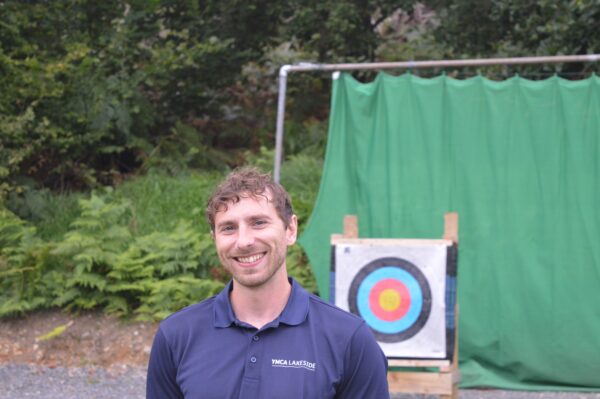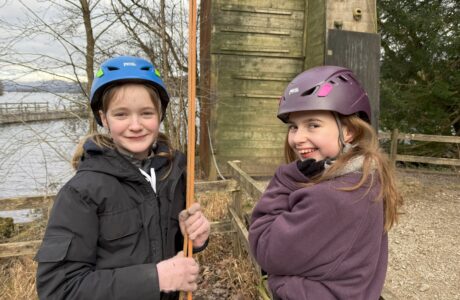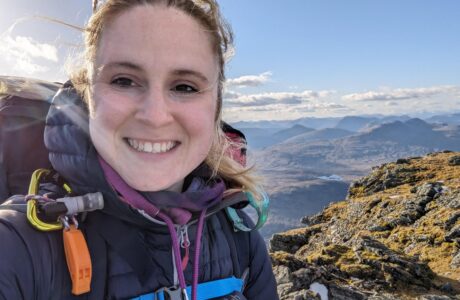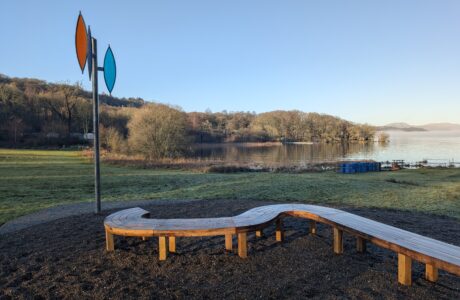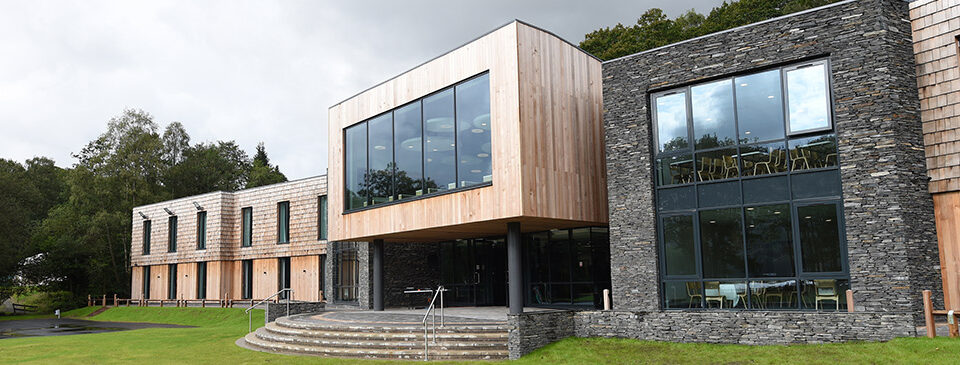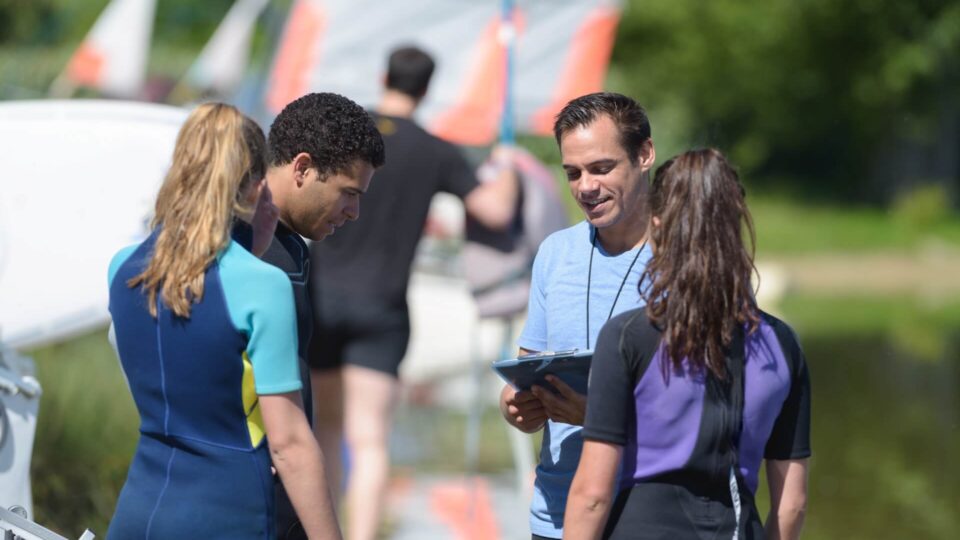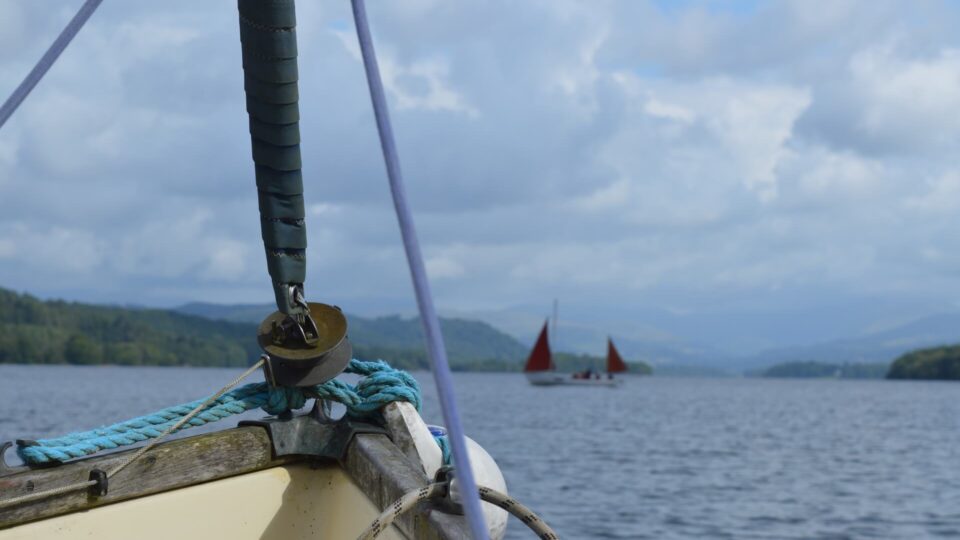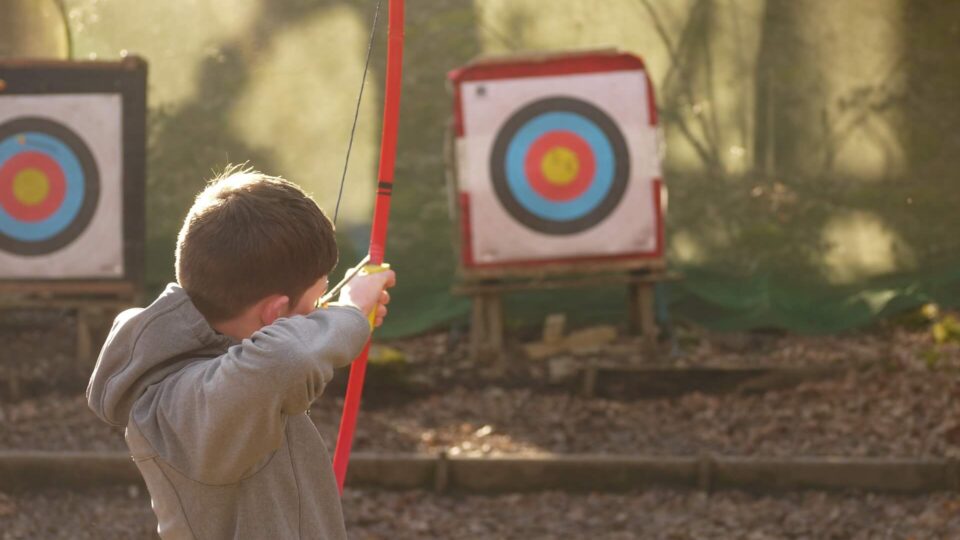In our HAF funded outdoor day camps, children aged 7–15 are immersing themselves in a week of nature‑based fun, exploring woodland trails, water activities, climbing, ropes challenges and more. With free lunches and convenient transport thanks to HAF funding, every child is fully diving into adventure, safely cared for by our YMCA Lakeside team. Outdoor Instructor, Jacob, tells us a bit more…
Can you describe what typical day looks like for the HAF programme?
After the morning bus drop-off, children arrive at YMCA Lakeside just before 9am, where they’re signed in and sorted into their groups for the day. From there, their instructors lead them through a full day of outdoor activities and games – all designed around teamwork, challenge, building resilience, and most importantly, having fun in nature. At midday, they stop for a hot lunch prepared by our on-site chefs, then get back into activities from around 1pm until it’s time to get back on the bus at 4.
Depending on their age group, a typical day might include sailing, paddleboarding, ziplining, climbing and abseiling, archery, bushcraft, and more. From an instructor’s perspective, it’s incredibly rewarding to offer these kinds of experiences – especially to children who might never have had access to them before. I really believe this kind of engagement with nature and challenge can have a lasting, positive impact on behaviour, confidence, and overall wellbeing.
What is your favourite activity to lead, and why?
My favourite activity to lead is probably “Homing.” It’s a full-day adventure where we collect our packed lunches and head out to explore. The day often starts by piling into a group canoe and paddling down the lake, before disembarking – sometimes with a quick stop for an ice cream – and beginning our walk back to the centre across the fells. Along the way, we take in some incredible views of the Lake District, explore forests and crags, play games, maybe set up tarp shelters, and practice a bit of bushcraft. It’s a brilliant way to engage with the outdoors.
What I love most is that you’re with the same group all day. You really get to know each other, have a laugh, and go on a proper journey together – one with a beginning, middle, and end. You often see a real transformation in the kids. Some start the day hesitant – not wanting to get muddy or go too far – and by the end they’re running through forests, splashing in puddles, climbing over rocks, and fully immersed in the experience. That change is something special to witness.
How does being in nature, rather than a classroom, change the way young people learn?
Growing up I always felt like the school system wasn’t really built for people like me. It tends to suit one type of learning – sitting still, listening, writing things down – and if that’s not how you naturally take things in, you can be left behind. For me, everything changed when I started learning through experience. That’s what the outdoors gives you – a chance to learn by doing.
When you’re out hiking, climbing, paddling – you’re problem-solving, working as a team, assessing risk, building confidence. It’s hands-on, physical, and real. And there’s solid research to back that up. Studies have shown that outdoor learning can boost engagement, behaviour, and memory. Natural England’s Natural Connections project found that kids who learn outside are more motivated and focused – and enjoy school more as a result.
It also benefits more than just academic learning. The outdoors helps physical health, mental wellbeing, and even how we connect with others. Just being out in green space has been shown to lower stress and improve mood – which is especially important now, when so many young people are struggling with anxiety and low confidence. The outdoors gives everyone a chance to shine, especially those who might not in a typical classroom. Whether it’s climbing a crag, lighting their first fire, or navigating back from a walk — there’s something about achieving things out here that sticks with people. It builds pride, independence, and a real sense of connection — not just to the place, but to themselves.
You can find out more about Lakeside and look out for the next HAF funded places announcement on Facebook.


